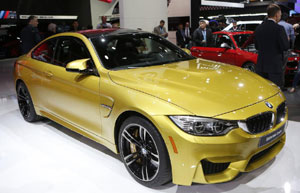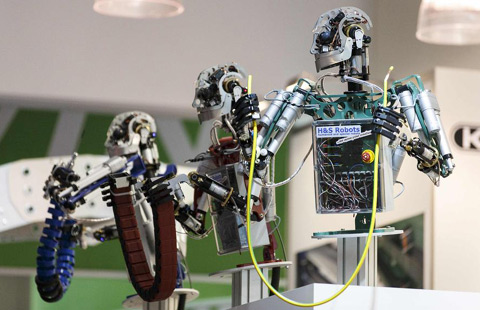BMW to invest $1b to expand US production by 50%
(Agencies) Updated: 2014-03-31 17:37Spartanburg started out making BMW's 3-series sedans but today makes mainly offroaders, producing 300,000 X3, X5 and X6 offroader vehicles in 2013 of which 70 percent were exported.
Gas-guzzling offroaders have proved particularly popular in the United States, thanks in part to the low fuel prices that have resulted from its booming shale oil and gas industry, a trend that is expected to continue.
In 2019, US domestic production of crude oil will account for 63 percent of total supplies, according to the Energy Information Administration, a significant increase from 2011 when it barely covered 38 percent of the country's needs.
By contrast the International Energy Agency has warned that Europe's high energy prices risk driving away a big share of its energy-intensive industries.
With sales of its BMW, Mini and Rolls-Royce branded cars climbing to 375,000 units in 2013, the United States has become the second-largest market for the company, accounting for 19 percent of its global sales.
China accounted for 20 percent of its sales while Germany, BMW's home market, accounted for only 13 percent.
BMW said the US will be a key driver of group sales in 2014, expecting overall market to grow to 16 million cars, almost rebounding back to pre-crisis levels last seen in 2007.
By contrast it sees only a slight uptick in Europe.
This year BMW aims to achieve a significant rise in sales volume to 2 million or more, after it delivered a record 1.96 million cars in 2013.
The latest investment will see the number of people employed at the Spartanburg plant rise by about 800 to 8,800, BMW said, adding there were no plans to create a German-style works council.
BMW's investment was welcomed by local dignitaries who were full of praise for Reithofer's bet on America.
"He was on the ground floor of the decision making. If this plant had failed, he wouldn't be chairman," South Carolina Republican US Senator Lindsey Graham said on Friday.
 |
 |
| BMW may double engine production in China JV | BMW M at North American Auto Show |
- Premier Li meets with Timor Leste's Prime Minister
- China encourages development of private healthcare
- Lufthansa Cargo strengthens its presence in China
- China battles for rags-to-riches stories
- Cars, models at 10th Manila Intl Auto Show
- Jack Ma to acquire 20% of Wasu Media
- XP's demise helps Chinese IT developers
- GM planning lower-priced version of 2016 Chevy Volt

















